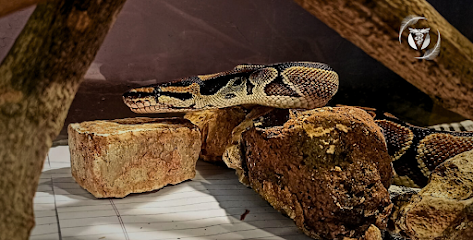7 Reasons You Shouldn’t Get a Conure
Conures are undeniably gorgeous—bright feathers, big personalities, and parrot energy packed into a smaller body. But owning one isn’t all rainbow feathers and Disney moments. From the ear-splitting calls to the decades-long commitment, conures can be a handful—way more than many expect.
Here’s why you might want to think twice before inviting one into your life.
1. They’re loud. Painfully loud.
Once, I was walking home and heard a very
distinct “RIO!”—from an entire lane away.
Conures aren’t just “chatty.” They scream. Their calls can cut through
walls, neighbours, and your last shred of peace, especially at dawn and dusk.
And it’s not just irritating—it can stress them
out. When a conure realises loud noises get attention, they’ll double down.
Breaking that cycle requires training, boundaries, and sometimes an avian
behaviourist… which isn’t exactly beginner-friendly.
2. Not exactly beginner material
Yes, they’re smaller than macaws or greys, but
they need the same level of care—annual vet visits, bloodwork, proper diet, and
daily enrichment.
A bored conure isn’t just sad—it can become destructive, pluck feathers, or
scream the house down.
3. They will bite you. For fun.
Conures can be triggered by anything: a
haircut, new makeup, even you shaving. One moment, they’re your feathered angel,
the next, they’re an evil rainbow chicken hanging from your finger. It might not
draw blood, but it’ll throb for three days.
They’ll also chew your phone, nip guests, and
guard you like a feathery Belgian Malinois. Patience (and possibly plasters)
are non-negotiable.
4. Personality: Sunshine or Storm
Many owners report sudden mood swings if their routine changes. Managing those swings means socialising them early, reading their body language, and occasionally bringing in professional help.
5. Mess-making Champions
Skip regular cage cleaning and you'll risk bacterial or fungal build-up, which can lead to nasty respiratory infections. If you’re not up for daily clean-up duty, they’re not for you.
6. A decades-long commitment
Travelling? Starting a family? Changing jobs? Your conure won’t care—they’ll still expect attention, toys, and breakfast on time. Ideally, you should have a backup caregiver who knows your bird inside out
7. Stimulation or chaos
So, should you get one?
Yes, if you:
- Are ready for 25+ years of care
- Have
time, space, and tolerance for noise
- Love
interactive, high-energy pets
- Don’t
mind the occasional bite or mess
No, if you:
- Live
in noise-sensitive housing
- Want a
low-maintenance pet
- Have
limited bird experience or time
- Can’t
commit long-term
How to decide:
- Meet a
conure first—preferably at a rescue
- Talk
to an avian vet before committing
- Do
your research—books, blogs, groups, vet advice
The Bottom Line
Conures are charming, intelligent, and hilarious—but they’re also noisy,
demanding, and messy. They’re not “starter birds”; they’re lifelong companions
who will keep you busy, entertained, and occasionally injured. If you’re ready
for the reality (and not just the feathers), you might just make the perfect
match.
That's all, folks.
I will be posting more articles covering rehabilitation, enclosures, diet, free flight, and training with various species, including turtles, snakes, dogs, and more.
- Gmail - namratansahoo@gmail.com
- Instagram - @TheVetDiariesBlog








.jpg)





Comments
Post a Comment